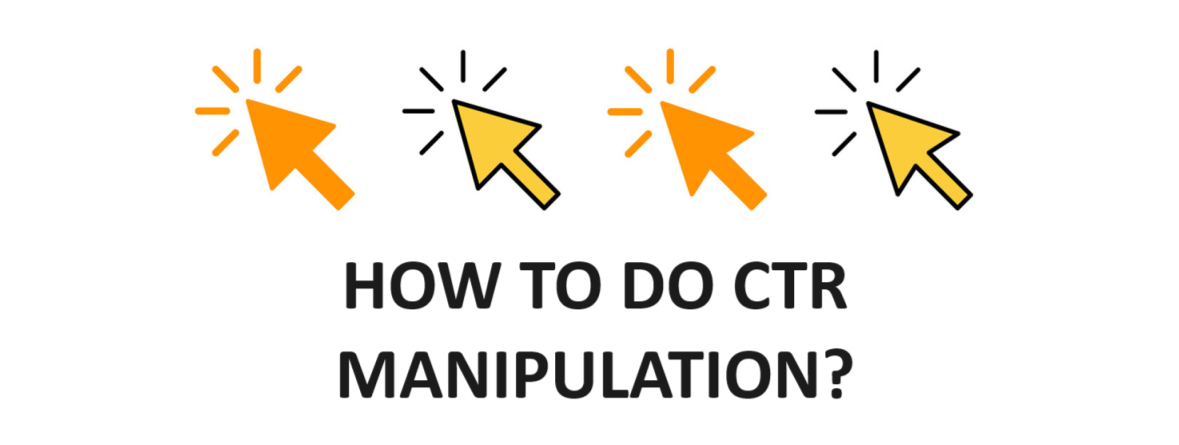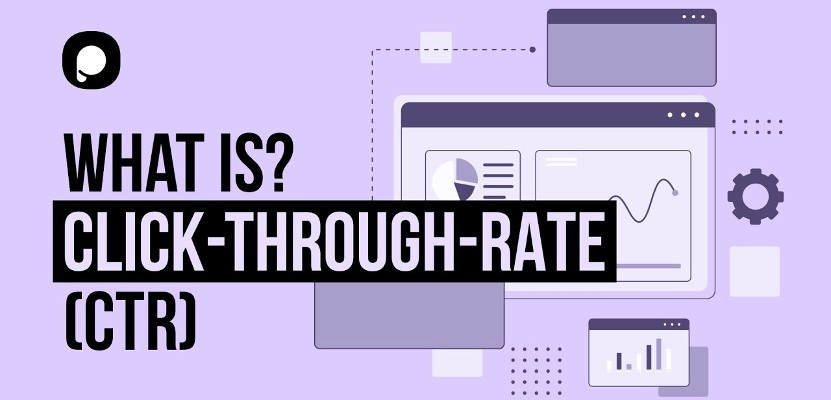Exploring the Connection Between CTR Adjustment Solutions and User Habits
In the world of electronic advertising, the impact of click-through rate (CTR) adjustment solutions on individual habits continues to be a complex and fascinating topic. By exploring the detailed relationship in between CTR manipulation solutions and individual habits, fascinating insights emerge that might reshape our understanding of digital advertising techniques and their impacts on customers.
Influence of CTR Manipulation on Actions
Evaluating the impact of Click-Through Rate (CTR) adjustment on user behavior exposes vital insights into the dynamics of online engagement. CTR adjustment involves unnaturally pumping up the number of click a specific link or ad to deceive users and search engines. This technique can cause an altered assumption of a website's appeal or importance, inevitably affecting individual actions.

Additionally, CTR adjustment can skew the information made use of by algorithms to customize user experiences. This can lead to individuals being offered content that does not line up with their choices or interests, ultimately resulting in a decline in customer satisfaction and involvement. Recognizing the influence of CTR control on user behavior is vital for preserving openness and rely on online communications.
Customer Engagement With Manipulated CTR
Customer engagement with manipulated CTR information frequently brings about manipulated understandings of on the internet web content popularity and importance. When users interact with material based on unnaturally filled with air Click-Through Rates (CTR), they might think that specific info, products, or solutions are a lot more preferred or trustworthy than they really are. This can result in users choosing based upon deceptive data, causing potentially undesirable end results.
Interaction metrics like likes, shares, comments, and time invested in a page are typically affected by CTR control. Individuals might be a lot more likely to engage with material that appears to have greater involvement rates, further bolstering the cycle of skewed assumptions. As an outcome, content makers and advertisers may prioritize creating content that generates high CTR instead than concentrating on producing genuinely useful and relevant material.

Emotional Results of CTR Manipulation

In addition, the mental effects of CTR control can additionally materialize in altered decision-making procedures. Individuals may be extra inclined to click on material solely based upon its regarded popularity, instead than its real worth or significance to their needs. This behavioral shift can lead to a shallow involvement with on the internet content, where customers might neglect top notch however much less popular offerings for those with synthetically boosted CTRs.
Basically, the emotional implications of CTR adjustment highlight the value of preserving transparency and authenticity in on-line explanation communications to promote genuine customer interaction and depend on.
Moral Factors To Consider in CTR Control
Thinking about the honest effects of adjusting click-through prices (CTR) in online systems is critical for preserving honesty and trust fund within the digital ecological community. CTR manipulation elevates problems concerning tricking customers, misshaping data analytics, and endangering the credibility of online web content. One significant ethical consideration is the potential effect on user freedom and decision-making. By unnaturally inflating CTR, individuals might be deceived right into clicking on links or ads they would useful source not have picked or else, resulting in a disingenuous online experience. Additionally, CTR adjustment can alter the performance metrics that organizations count on to make critical choices, eventually affecting market competitors and customer trust fund.
One more honest element to contemplate is the justness of manipulating CTR to gain an unfair benefit over competitors. Participating in such methods not just breaks concepts of reasonable play however likewise weakens the trust fund that individuals place in on the internet systems. It is necessary for companies and electronic marketing experts to promote moral criteria in their methods to make sure transparency, integrity, and long-lasting sustainability in the online atmosphere.
Ramifications for Digital Marketing
With the enhancing dependence on electronic platforms for advertising objectives, the technique of manipulating click-through prices (CTR) postures considerable ramifications for the effectiveness and honesty of electronic marketing methods. CTR adjustment can lead to manipulated data analytics, misleading marketers right into thinking that their campaigns are carrying out better than they actually are. This can result in misallocation of resources, with business spending in underperforming methods based on falsified CTRs. Moreover, when customers realize that CTRs have actually been manipulated, it can deteriorate depend on in the brand, causing long-lasting negative repercussions for customer this content commitment and brand name online reputation.
Additionally, making use of CTR manipulation solutions can develop an unreasonable competitive landscape, where firms that participate in such methods obtain a man-made advantage over those that stick to honest advertising standards. This can stifle development and creative thinking in electronic advertising and marketing, as success becomes more regarding manipulation methods than delivering real value to customers. Eventually, the effects of CTR manipulation for digital advertising and marketing extend beyond short-term gains, affecting the total sustainability and integrity of advertising and marketing efforts in the electronic world.
Conclusion
To conclude, the connection between CTR manipulation solutions and user habits is complex and multifaceted. The impact of CTR manipulation on habits, user involvement with manipulated CTR, emotional results, honest considerations, and effects for electronic advertising and marketing all play a duty fit this relationship. Recognizing these dynamics is critical for marketers and researchers alike in order to browse the moral effects and make the most of the effectiveness of their digital marketing approaches.